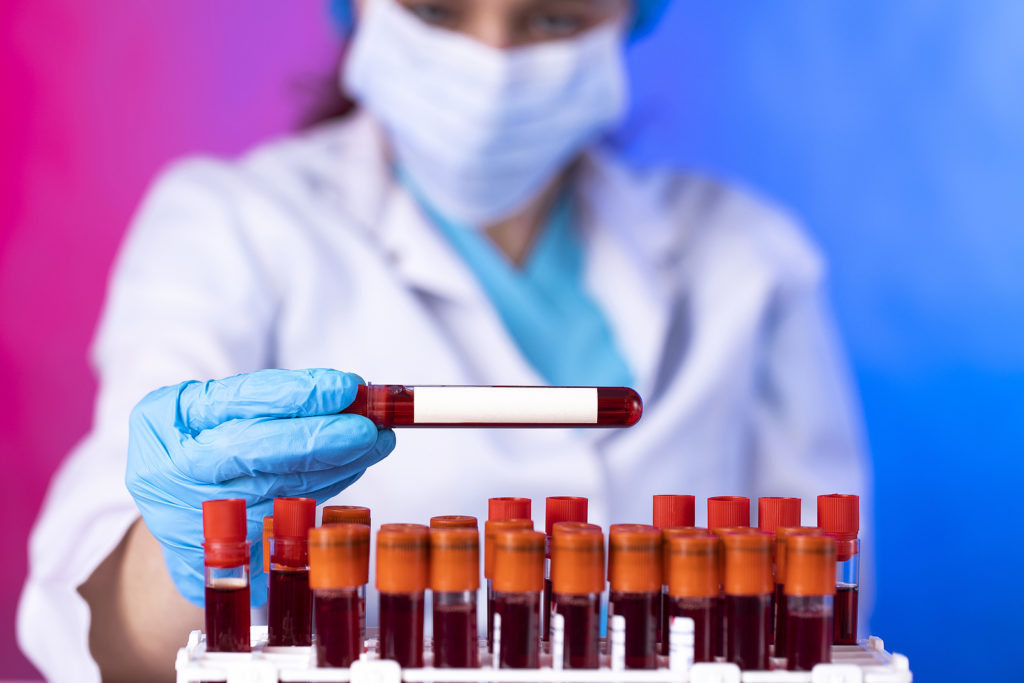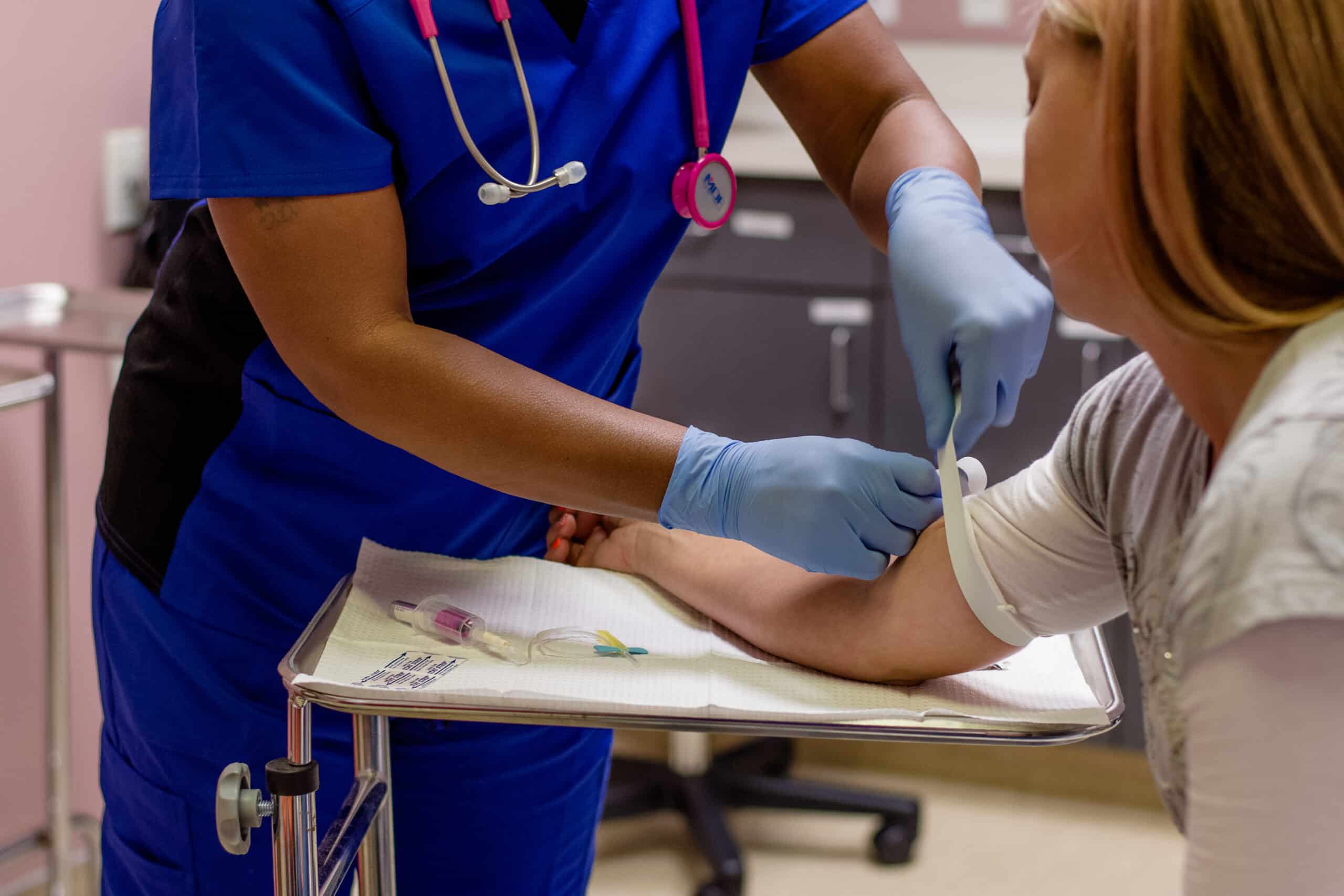Your Step-by-Step Guide to Starting Phlebotomy school With Confidence
Wiki Article
The Path to Accreditation: Recognizing the Phlebotomy Training Program Journey and Its Value
As you consider the course to qualification in phlebotomy, it's vital to recognize the duty you'll play in medical care. Your training will certainly cover necessary skills, from blood collection methods to patient interaction.
The Duty of Phlebotomists in Medical Care
Phlebotomists play a necessary function in the healthcare system, working as the crucial link between individuals and vital diagnostic screening. You'll carry out blood draws, making sure samples are accumulated precisely and safely. Your expertise assists in diagnosing clinical conditions, checking health and wellness, and guiding therapy decisions.In your everyday interactions, you'll require to develop trust fund with people, making them really feel comfortable throughout what could be a difficult experience. You're responsible for labeling and handling examples carefully to avoid contamination or errors, which might influence test outcomes.
Yet, you'll usually work together with medical professionals and nurses, interacting important details regarding individuals' conditions. Your function is essential in keeping the workflow in healthcare settings, making sure prompt and accurate outcomes. By mastering your skills, you contribute meaningfully to client treatment, making you an essential part of the medical group. Welcoming this responsibility is essential to your success as a phlebotomist.
Introduction of Phlebotomy Training Programs
When discovering phlebotomy training programs, you'll locate numerous kinds created to fit various routines and discovering styles. Each program helps you establish necessary abilities like blood collection and person communication. Recognizing these alternatives is vital to picking the appropriate course for your occupation.Kinds of Training Programs
A number of kinds of training programs are available for those looking to become competent in phlebotomy. You can select from certification programs, which commonly last a couple of months and concentrate on vital skills. There are also diploma programs that give an even more complete education and learning, typically lasting up to a year. If you're looking for a much deeper understanding, an associate level in a related area may be the best fit. Online training courses use versatility for those stabilizing job or family dedications, enabling you to study at your very own speed. Additionally, some health centers and centers provide on-the-job training programs, giving functional experience while you learn. Whatever course you choose, each program intends to furnish you with the necessary abilities for a successful phlebotomy occupation.
Key Skills Established
Mastering phlebotomy requires a collection of crucial skills that are developed via thorough training programs. Additionally, interaction skills are fundamental; you'll require to engage with clients, explain treatments, and put them at ease. Each of these abilities is vital for your success as a certified phlebotomist, making you an important asset in any kind of health care setting.Trick Components of a Phlebotomy Training Course
In a phlebotomy program, you'll concentrate on necessary topics that lay the foundation for your future occupation. You'll engage in hands-on training that permits you to apply what you have actually discovered in real-world setups. Both the core curriculum and practical experience are crucial for your success as a phlebotomist.Curriculum Introduction
While going after a phlebotomy training course, you'll run into a curriculum made to furnish you with basic skills and understanding. Phlebotomy school. This educational program usually consists of anatomy and physiology, concentrating on the blood circulation system and comprehending blood components. You'll additionally discover various kinds of blood collection methods, including venipuncture and capillary slit strategiesFurthermore, infection control and security procedures are vital elements, ensuring you understand exactly how to keep a clean and sterile setting. You'll research patient communication, highlighting communication and empathy, which are crucial for relieving client anxiety.
Hands-On Training Experience
Getting hands-on experience is an essential part of your phlebotomy training program. This practical training allows you to use what you have actually discovered in a real-world setting, enhancing your abilities and self-confidence. You'll practice venipuncture techniques, find out exactly how to deal with different kinds of samplings, and obtain acquainted with the equipment made use of in the area. Under the assistance of experienced teachers, you'll fine-tune your skills, guaranteeing you're gotten ready for any scenario you could face.Furthermore, you'll obtain the opportunity to connect with individuals, which is vital for developing your interaction abilities. This combination of technological proficiency and social skills is important for your success as a certified phlebotomist. Inevitably, hands-on training is where theory satisfies technique, solidifying your expertise and readiness for accreditation.
Certification and Licensing Demands
Prior to you can begin your career in phlebotomy, it is crucial to understand the accreditation and licensing needs that vary by state. Many states call for phlebotomists to hold a certification from an acknowledged company, such as the National Phlebotomy Association or the American Society for Scientific Pathology. These qualifications generally entail passing a test that evaluates your understanding and abilities in the area.In addition to accreditation, some states have certain licensing needs. You Phlebotomy Training Course might need to complete a specific number of hours in scientific technique, send proof of training, or undergo a background check. It is essential to investigate your state's laws to see to it you meet all necessary criteria.
Staying notified regarding these needs not just aids you safeguard a placement however also improves your trustworthiness as an expert. By meeting these needs, you'll be well on your means to a successful job in phlebotomy.
Hands-On Training and Practical Experience
Hands-on training and sensible experience are important parts of your phlebotomy education, as they permit you to apply theoretical understanding in real-world circumstances. During your training, you'll take part in monitored venipuncture, discover correct strategies, and become acquainted with various blood collection tools. This direct participation is crucial for building your self-confidence and honing your abilities.You'll work carefully with skilled specialists that can assist you with the nuances of patient interaction and example handling. Each technique session not only reinforces your understanding yet likewise prepares you for the hectic setting of health care settings.
Furthermore, many programs include scientific rotations, permitting you to experience varied settings, from hospitals to outpatient facilities. This exposure aids you adapt to various difficulties and patient demands, ensuring you're well-prepared for your future duty. Accept these opportunities, as they're vital to ending up being a skilled and thoughtful phlebotomist.
Difficulties Encountered During Training
While getting hands-on experience is essential, it's important to acknowledge the challenges that can occur throughout your phlebotomy training. In addition, mastering the skills required for blood attracts takes technique; you might struggle with technique at first.Time administration can additionally be a difficulty, as balancing theory, useful sessions, and individual dedications can really feel daunting. You might face varying learning paces among your peers, causing sensations of insecurity if you believe you're falling behind. Finally, adapting to the different characters of trainers can be difficult, as each may have a special mentor design.
Recognizing these obstacles early on can prepare you for success and help you develop strength throughout your training trip.
Job Opportunities After Qualification

As you obtain experience, you may even take into consideration specializing in locations like pediatric or geriatric phlebotomy, providing to particular patient needs. Some phlebotomists pick to advance their occupations by becoming research laboratory specialists or seeking additional education and learning in healthcare areas.
Additionally, your accreditation can lead to functions in training or supervising new phlebotomists, permitting you to share your understanding. With the healthcare market consistently growing, your skills will certainly always be in need, leading the way for a steady and meeting profession. Accept the chances waiting for you!
Often Asked Inquiries
What Is the Typical Duration of a Phlebotomy Training Training Course?
Phlebotomy training programs generally last around 4 to 8 weeks. You'll take part in hands-on practice, classroom direction, and on the internet understanding. Finishing this training prepares you for qualification and a rewarding profession in health care.Are Online Phlebotomy Courses Available?
Yes, on-line phlebotomy training courses are available. They offer versatility and benefit, enabling you to research at your very own rate. Simply validate the program is accredited to meet certification needs and obtain valuable skills for your career.Just How Much Does Phlebotomy Training Generally Expense?
Phlebotomy training usually costs between $700 and $2,500, depending upon the program and place. You ought to think about elements like program length, included products, and hands-on experience when choosing the right training for you.What Are Usual Requirements for Phlebotomy Training?
Typical prerequisites for phlebotomy training usually consist of a secondary school diploma or GED, booster shots, and a history check. Some programs may additionally need basic medical care understanding or qualifications, ensuring you're prepared for hands-on training.Can I Function While Completing My Phlebotomy Training?
Yes, you can function while completing your phlebotomy training. Several trainees equilibrium tasks with their studies, however ensure to handle your time efficiently to assure you satisfy both job and training commitments successfully.Report this wiki page